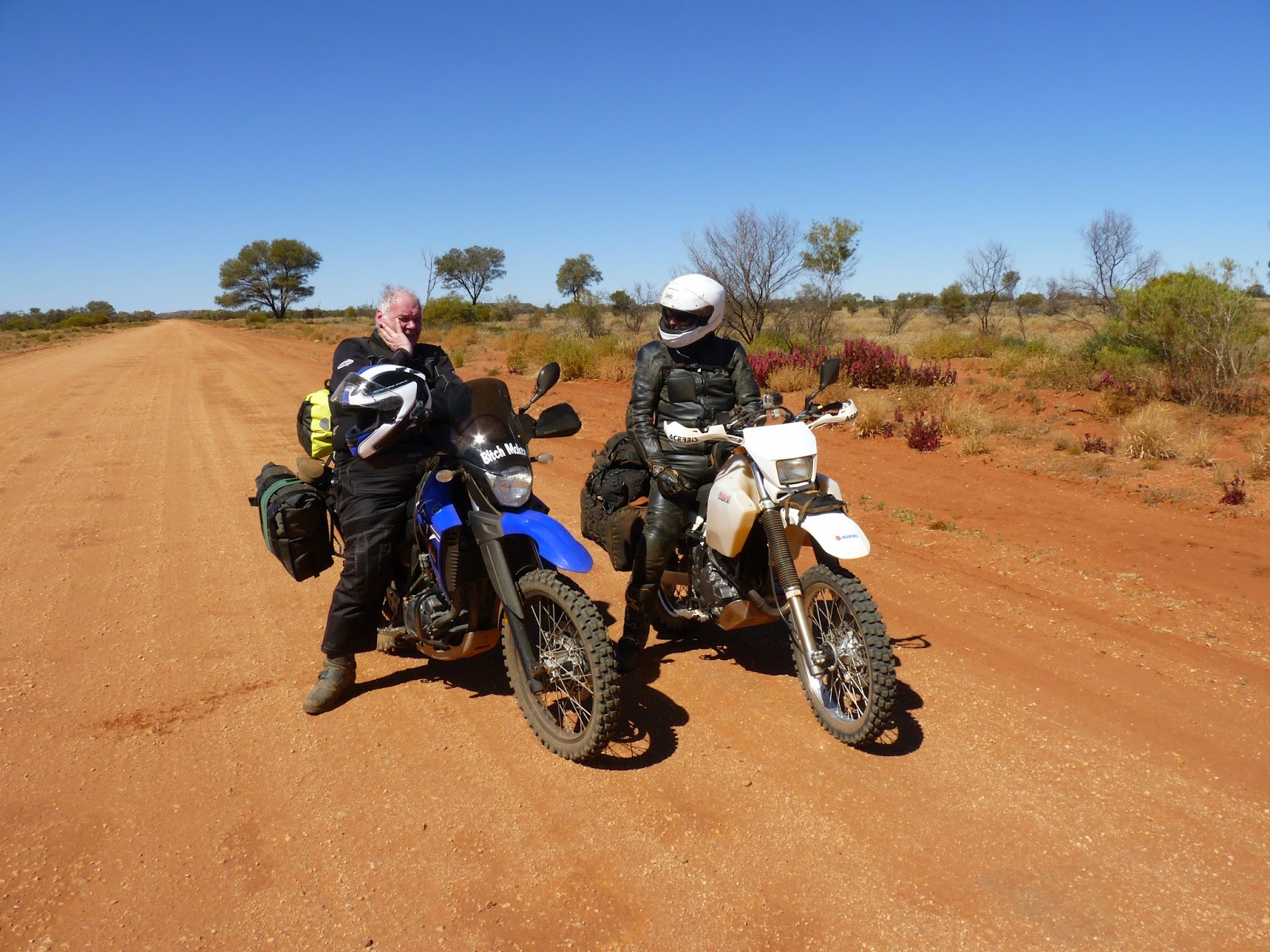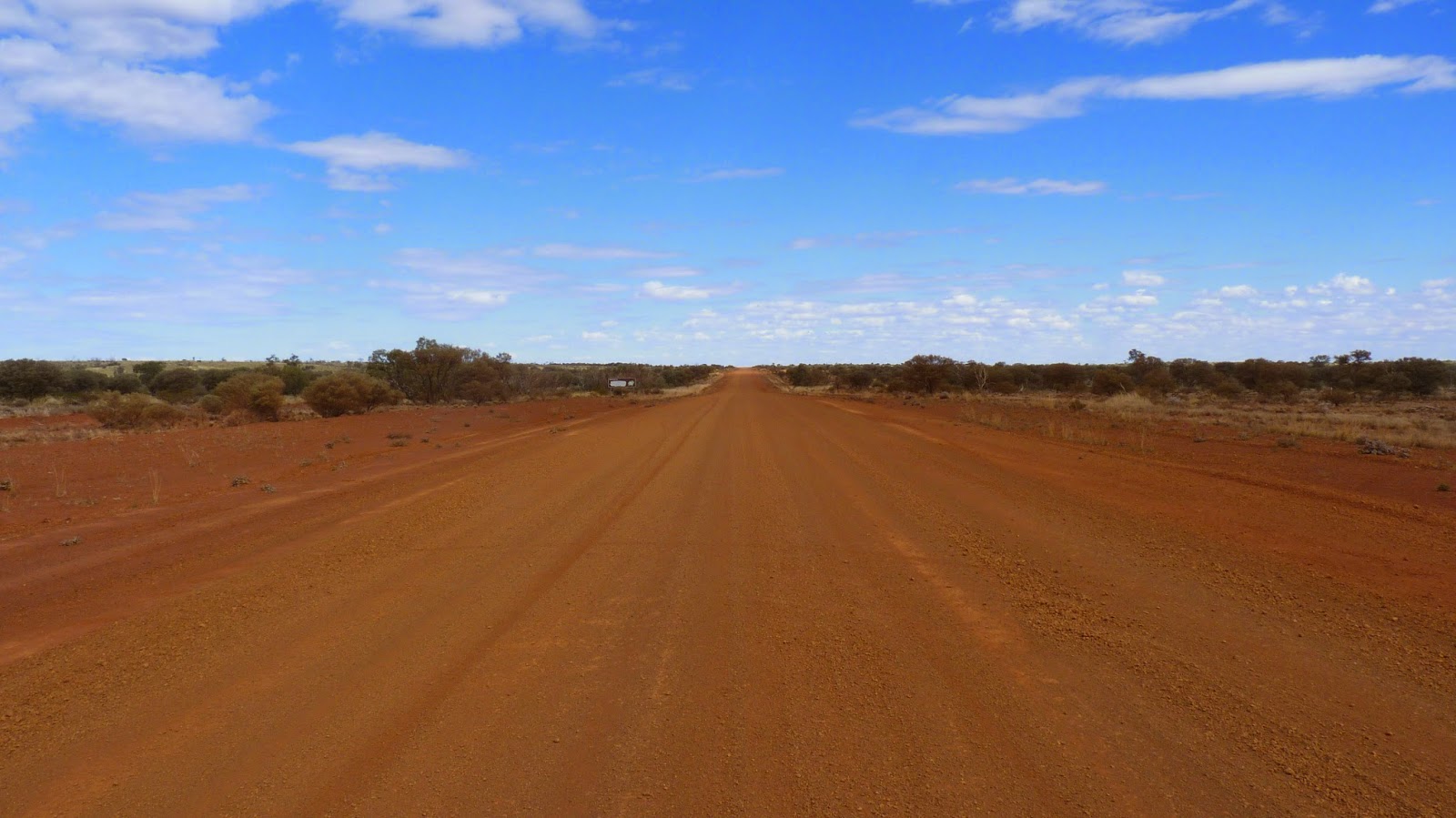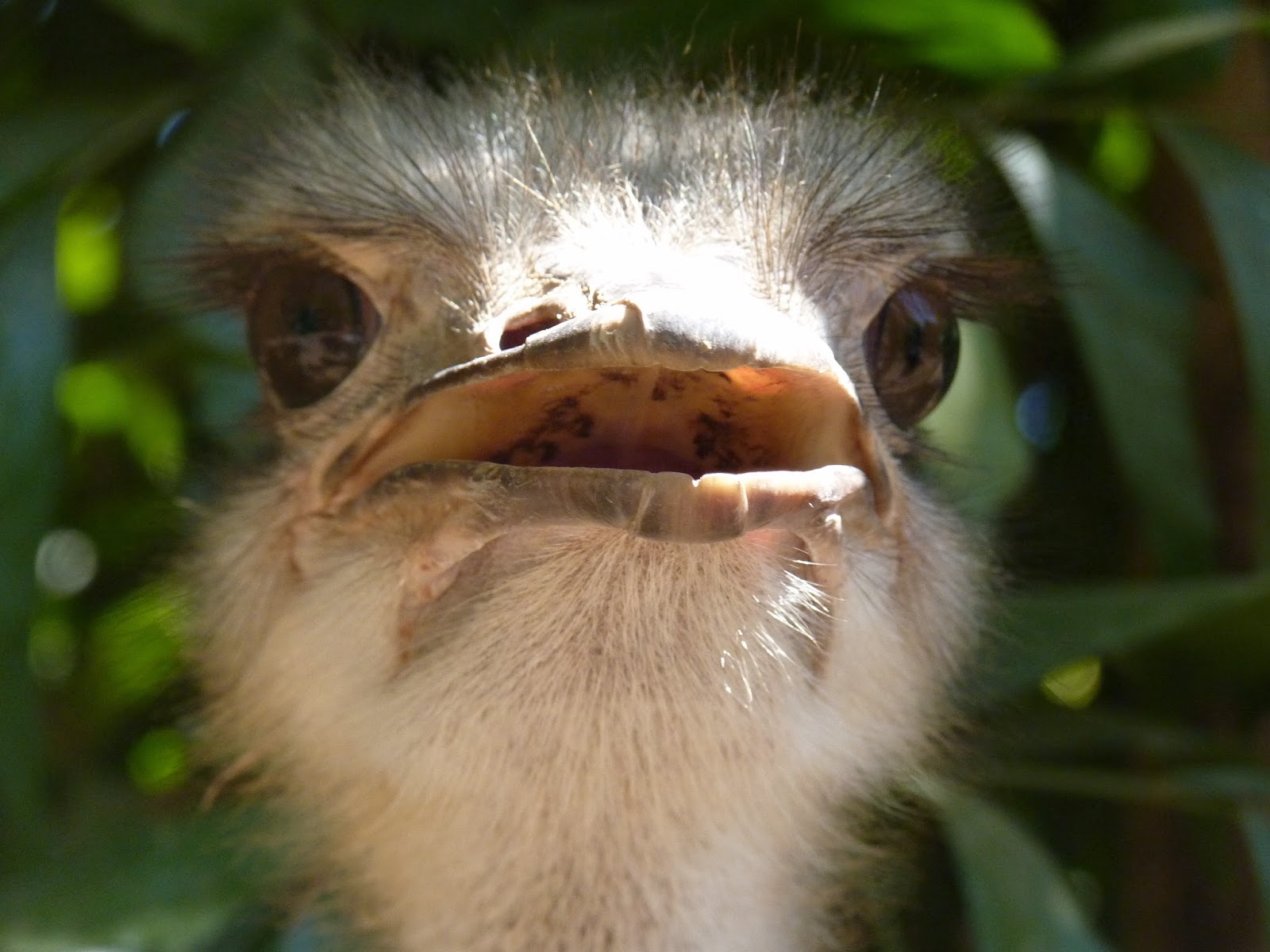We left Yullara and headed for Ayres Rock, the Olgas and then finally the Great Central Rd. Pete had visited Ayres Rock the day before and had to pay $25 for a 3 day pass. I didn't, so I had to use my permit to travel on the Great Central Rd as a pass to get through the gates. The Great Central Rd has two aboriginal tribes that own the land. So before anyone travels on these lands, they must get permits. We had them, albeit with dates changed by the WA aboriginal affairs office the day before. Interesting to note, that we were never asked for our permits once on the road.
The road from Yullara to the WA border was a challenge. We both came very close to dropping our bikes, several times. Whilst the road was severely corrugated, it was the sand that caused us all the grief. I lead on the dirt sections and was travelling slow, but Pete was even slower having a harder time of it. For a safety measure, as the lead rider, you travel a distance and then slow down / stop and wait until you see the head light of the following bike and then travel on. The sand was so bad, at times I could not stop or slow down. Stopping was not the problem, it was the going again, in deep soft sand that leads to a drop. At 250 kg of bike plus gear, neither of us wanted to pick it up. Plus it was a pride thing. Neither one of us wanted to be the first to drop the bike.
At one of these stops, I took photos of a red flowering bush and once Pete caught up, we had a break and a well deserved drink of water. By chance another biker came by and gave us some good advice of where to go and most importantly avoid.
The avoids were;
- do not enter Docker River - we had to as we needed fuel
- do not stay at Warburton Roadhouse (was planned too, but we took his advice)
He also reminded us, speed up in the sand. It was like a huge kick in the head and a wake up call for me. I was riding a little faster than Pete, which just was not my style of riding and being on a larger 1200cc bike, made riding on sand a nightmare. So I stuck the boot in, doubling (or more) from 40 km to +80 km, standing up and it was so much easier. The downside, super concentration is needed as one little slip - ie 5-10 cm left or right into sand could (will) cause a horrific crash. When you finish the days riding, you have had a super upper body and lower body work out and you are mentally drained. It's the mental side, ie being hyper, which takes me hours to get over it.
We entered the township of Docker River. It's an aboriginal community and you could see the shambles riding past the first house. Rubbish everywhere around the houses and it continued until we arrived at the general store. 10 - 20 aboriginals were sitting around the area and the petrol / diesel pumps were all caged. The looks we received as we took our helmets off, was a distinct - F^*& off - we don't want you here. I told Pete to stay with the bikes in front of the caged petrol bowser and I'll organise fuel.
As I entered the general store, to my right were two Asian girls at the cashiers and an elevated office window where two aboriginals ladies were trying to get some paper work completed. As I waited behind the two ladies, the stench of the place started to hit me. It stank!! I can't compare the smell to anything, but maybe close is sweaty socks left to stew in heat and then left 2 cms from your nose. It was horrific. Once the two ladies received their $140 fuel purchase order (currency in community life) I was served and was told the cashiers would help with the fuel.
It took a while for the cashier to help, as the lady with the $140 fuel purchase order was trying to buy groceries and an argument ensured, as she could not spend the purchase order on groceries. So, I'm listening, watching and loosing my sense of smell and finally the cashier escorted me to the bowsers. She was a great girl and we chatted. She had been in the community for 5 months and only had 2 weeks to go. I asked her - Are you glad to be going? She just smiled and said yes. Foreigners who want to have a 1-2 year tourist visa for Aus, are required to work in Aus and that working period is shorter if they work in remote areas. That's why most of the pubs, roadhouses etc in the outback have tourists working for them. The money is great, starting at $39 per hr and up to $55 for Sat & Sun.
Whilst I was getting a sensory overload in the grocery store, Pete was abused via hand gestures. We filled up and I gave Pete $100 to go into the grocery store and pay, whilst I looked after the bikes. I wanted him to share in my experience. I still had the smell in my nostrils half an hour after leaving the community.
Once we hit the WA border, the road conditions turned for the better. Some sections were sandy, but for me it was +100 km's and I was having a ball. The first night, we stayed at Warakurna Roadhouse and met up with the rider we met earlier in the day. He was a great wealth of information and we soaked up his advice, as he appeared to know this area very well. The aboriginal community was 5 km away and had their own grocery / petrol store, so it meant our campsite was relatively safe from theft. However, there were several dingos in the area and we saw two walk through the outskirts of the campground. I was so excited seeing them, but realised, shoes, food etc had to stowed securely away.
The following day was 225 km to Warburton Community for fuel, and then 245 km to our final destination of Tjukayirla Roadhouse. The Warburton roadhouse was also another assault to my senses. The lack of cleanliness and hygiene by the aboriginals just shocks me. You can tell they are within 2 mtrs from you, just by the stench. Fuel up and outta there.
The road conditions were pretty good, with the odd sandy section to trap those not concentrating and corrugation sections bad enough, that my teeth were chattering in my helmet. We made Tjukayirla Roadhouse by 3pm and it was a pleasant surprise. No community in the area and great managers. After our meals and a shower, we sat by a campfire with other campers and the managers and shared some yarns. Great learning more about community life, roadhouse life and some of their highs and lows. It gave me an insight into aboriginal life and the government funding that is handed out.
The last day riding on the Great Central Rd today was 303 km to Laverton and then another 124 km on black tar to Leonora. Easy days ride, but given the high km's between fuel stops, we had to keep the speeds low to conserve fuel. This peed me off, as most of the dirt sections were +120 km zones.
Along the entire length of the +1,000 km Great Central Rd, it's a dry zone. This means no one can buy alcohol. This does not mean the aboriginals don't have alcohol, as they travel 800kms to the nearest town, fill up the boot and then take it back.
Along the Great Central Rd, the dearest we paid for Opal fuel was $2.35 per litre. Opal Fuel is the only fuel in the true outback and it has no fumes/ This is to stop the aboriginals sniffing the fumes to get high and destroy their brains. This then begged the question, if the fuel is fumeless, why are the bowsers caged up? It's because the aboriginals will try and destroy the pad locks, cut hoses and destroy the bowsers to get petrol for their cars.
The outback is an eye opening place for a city slicker. I would like to know were does all the mining / tourism royalties go within the communities. I understand they get a fortune and yet the communities live in squalled conditions. Add to that, government money. I have learnt a lot and would like to know more. I am tempted to work for a few months at the Tjukayirla Roadhouse, but I have things to attend to when I get back in Melb. But hopefully Melbourne will be another 2 months away.
All in all - it was a great achievement to get through the Great Central Rd on a 1200cc Adventure bike. It has given me the confidence to tackle the Pilbara, Kimberleys and Savanagh Way. Neither of us have dropped the bike..... Yet!!
Start of the Great Central Road
The Olgas in the background
These flower bushes look great along the roadside
Friendly biker - carrying +50lts of fuel.
Within 10 mtrs of passing the NT / WA border into WA, the road conditions changed from Nightmare to fair to good.
Warakurna Roadhouse
These signs are placed for all tourists to see. If the aboriginals see a petrol container, Opal (non fumes) or Unleaded, expect your car / caravan / tent trashed in search for the petrol. It's a real problem up here.
Easy sections of the Great Central Rd. Sorry, but I can't take pics of the rough sections as it's pretty tough going.
Fuel bowser cage.
Campsite at Tjukayirla Roadhouse. The only place on the road, alcohol can be drunk. Cannot buy it, it's BYO. Teachers, police and other workers in the dry communities will store their grog at Tjukayirla Roadhouse and every month or so, will spend the evening having a merry time. They will travel 200-500km just for a drink. Personally I think it sucks they can't drink in their private residence within the community. But if they knew they had grog stored, the house would be (allegedly) robbed.































































